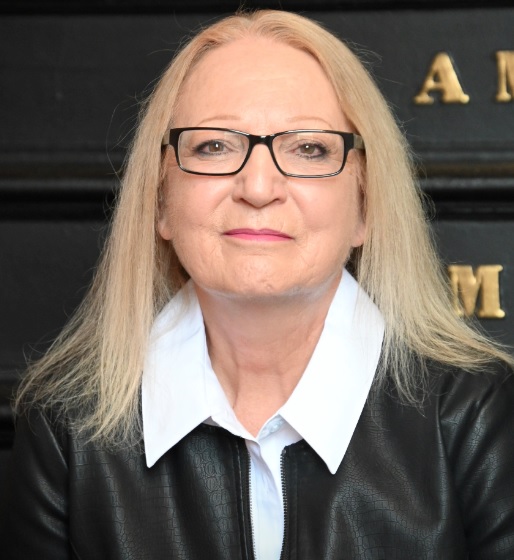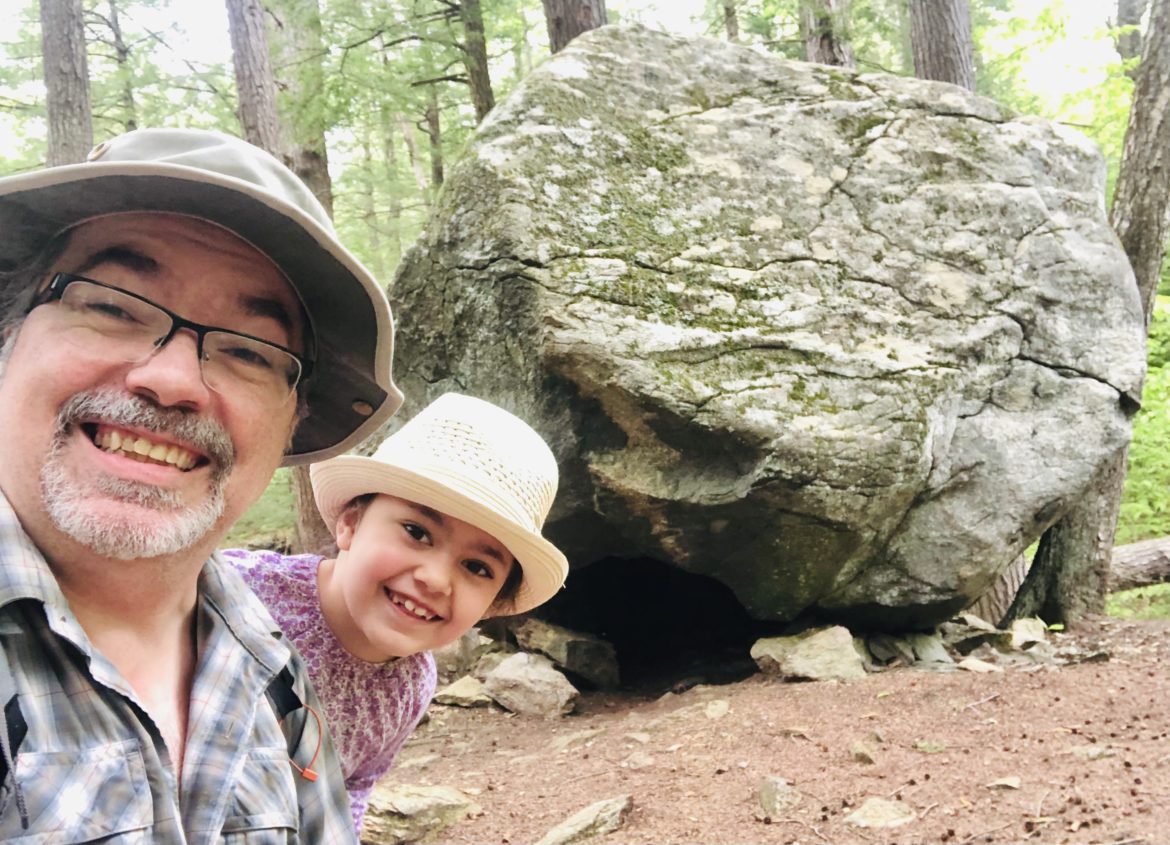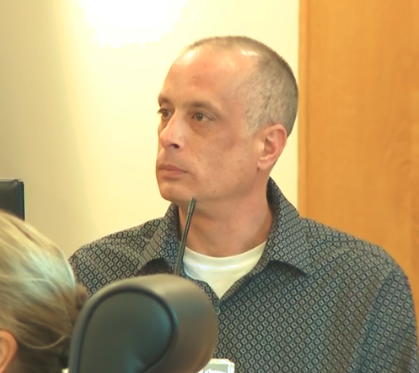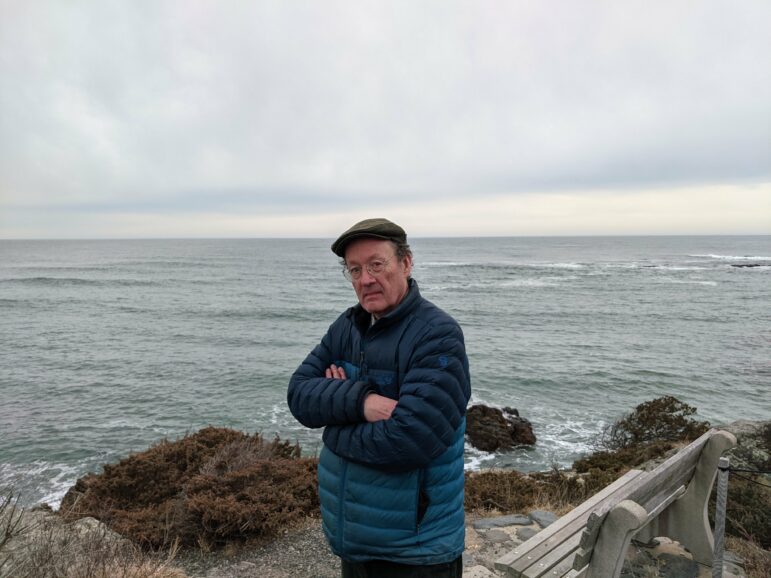
A NH Writer’s Life
By Beverly Stoddart
At the end of my conversation with Dan, where we talked about his books, travel, and his family, my last question of the two-hour discussion surprised him. I wanted to know why Dan is so kind. He paused and searched for an answer, slightly taken aback by the question. He joked he was a reporter on a police beat in Trenton and Princeton, New Jersey, and being accused of kindness was rare on that particular part of his career.
“First of all, if you are in the local art scene and you’re trying to make a career of painting or writing or anything in the gig economy or creative economy, being anything but kind is going to bury your career within the first week. So just being empathetic and being kind is the first step towards making a go at this career. And maybe that’s the first step at making a go of any career, and that’s the best way to live your life. It is a lesson. It’s not an automatic thing for people, especially when they’re strangers to one another.”
“Part of it is I was a reporter for 30 years, and I have this job to do. And how are you going to do the job? How do you make that interview subject sit with you for two hours? It doesn’t happen if you’re a jerk.”
“There are exceptions. Especially in the sort of political sphere we’re living in now, that’s sort of an acknowledgment of push back against each other. I was a political reporter for many years, and when I got to the national level, I disliked it very much.”
“Maybe the answer is this. Maybe it has to do with just telling a good story. I belong to writers groups, Facebook groups, and a question asked all the time that is baffling to me is where do you get your ideas? That seems like such a shocking question to me because how can you not have ideas? Look at the world. If nothing else, six billion people are living in this world, and that means there are six billion stories. To get those stories, you have to make people trust you, and you can’t make people trust you if you are not authentically interested in them. I can pretend, but I can’t write any of these books if I’m not actually interested in the stuff that I’m writing about. And to be interested, I need to make people trust me and know that I’m not going to mess them up, look bad or do something stupid. The best way to do that is just to be kind, be a normal, decent, empathetic human being. It takes work, especially in this environment. It’s truly easy to be angry, and it’s really hard not to be angry. You capture people in this place and give them something they can’t get to.”
“None of this stuff is what you’re writing about. This is about the human experience. And it happens to take place at the summit of Mt Washington or in front of some rock. It’s about everybody getting together and being a nice person and having an experience as a human being. That’s what it’s all about.”
After the interview, Dan posted on Facebook calling for comments on kindness..
“Just finished a delightful interview with Beverly Stoddart for her A NH Writer’s Life column, which runs monthly over at InDepthNH.org. For those of you not in the know, Beverly is a master interviewer, a skill on full display in her book, Stories From the Rolodex.
“Anyway, I’ve known Beverly for a while and love reading her work, but she threw a curveball at me near the end of the interview that I’m still puzzling over. She asked, “Why are you so kind?”
“What a remarkable question, and not just because it’s really hard to answer a compliment question. (Go ahead, ask somebody you know the question and watch them struggle to answer.) Also, I assured her that I don’t FEEL kind all of the time.”
“But in the context of the interview – my career as a writer – the question took on an all-new meaning because it suggests that the trait – kindness – has a specific purpose.”
“In other words, I’m consciously aware of and working at being kind as opposed to just being that way as a human being. So, kindness as craft, as opposed to nature – something you have to get good at, work at.”
“My first reaction, of course, is to recoil from the idea of kindness as craft, but as I spoke to her about it, thinking aloud as I went, it occurred to me that it’s really easy to get angry, but much harder to be kind – like a whole host of learned skills must be put into play like patience, empathy, etc.”
“So, how much of that is deliberate? As a reporter (and now as a writer), my job is to put people at ease, to be authentic. If someone thinks I’m going to do them harm with my words, they won’t open up. They won’t trust me. And kindness just works better in that case. But at the same time, I really like people. My interest in their stories isn’t drummed up. When I’m working on a project, I’m legitimately engaged and intrigued. And people respond to that as well, it seems.”
“Can we develop kindness, work at it, develop skill at it like any craft person? And if we can, then why don’t we? Is it too hard? Is it worth it? Are people worth being the receivers of kindness, or is that just not our jobs? How much of it comes from our family or parents? Can we model behavior even if we don’t feel it? Is acting kind the same as being kind?”
“I’ll step back and let your comments on this roll as I’m really interested. Let me hear what you think.”
A lot to process here, but I’ve always been impressed at how doing the right thing (in this case, being kind) for the right reasons (genuine love for others) turns out to also be the long-term strategic thing that ultimately benefits the most people, including yourself.
If only kindness was contagious… we’d all be much happier.
The “messages” I received growing up in central Maine were more about competing successfully than about kindness. I don’t recall ever thinking about kindness as a child, and I don’t think our society today is particularly kind, although individual people may be quite wonderful. Children and adolescents are notoriously vicious to the weaker members of their groups.
You will teach your children about kindness and to be kind, but the hardest lesson is to still be kind to people, NOT kind to you… I think kindness goes beyond The Golden Rule. I have been putting much thought into this with regard to my 3yo grandson – arm him with kindness had he’ll have good karma.
Interesting questions posed. I think you can develop it and actively work to be kind even if you aren’t feeling it… and acting kind when you’re not feeling it actually causes a biological response that calms or diffuses tension, meaning in a way, acting kind is as much for our good as for the person we’re being kind to.
Your post was timely as three times today, I have heard of the kindness project started by teens.
I have always been told the same and appear to have a kind and empathetic approach that I believe is just a part of who I am, and I feel you are probably like this as well. We surely need it in this world in a matter how ugly people can be towards me. I always smile and look for the light within that is present, albeit often buried in all people I truly believe.
Beverly Stoddart:
Hi Folks: I am so enjoying reading the replies to Dan’s post. He is kind and has been to me since I met him at an NHWP class where teacher Dan made the class go out on a contemplative walk. Who does that?? But that kind of walk works. My take on kindness is to lead with it. I do not want to fail myself by acting poorly, rude or selfish. I know kindness when I see it, and I help myself to be a better person by practicing it—my best to you all.
FS:
What a wonderful question! Worth contemplating in these days where it feels like kindness has gotten a bit less prevalent. It’s easy to be kind to kind people. How does one stay kind when faced with unkindness?
EP:
Kindness is our true nature. Unkindness stems from seeing something in someone else that reminds us of something in ourselves that we don’t like.
I’ve had this conversation with my husband! He is a kind person while I am a nice person. And I believe anyone can be nice, but not everyone is kind. You can learn to be more instinctively kind, though. It’s like writing or painting or patience or empathy or any other skill. Some are born with it. Some learn it.
And finally…
I want to thank all of you who read my column this year and wish you all the very best holidays. Here’s to a wonderful 2022!
Kind regards,
Beverly Stoddart
Beverly Stoddart is a writer, author, and speaker. After 42 years of working at newspapers, she retired to write books and a blog. She is on the Board of Trustees of the New Hampshire Writers’ Project and is a member of the Winning Speakers Toastmasters group in Windham and the Ohio Writers’ Association. Her latest book is Stories from the Rolodex, mini-memoirs of journalists from the 1960s, 1970s, and 1980s. A prized accomplishment was winning Carl Kassel’s voice for her voice mail when she won the National Public Radio game, Wait Wait…Don’t Tell Me! She has been married for 45 years to her husband, Michael, and has one son and two rescue dogs.





